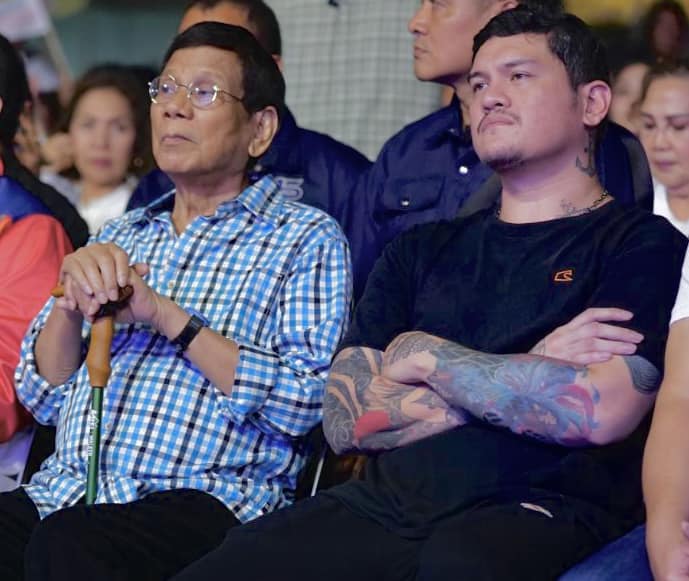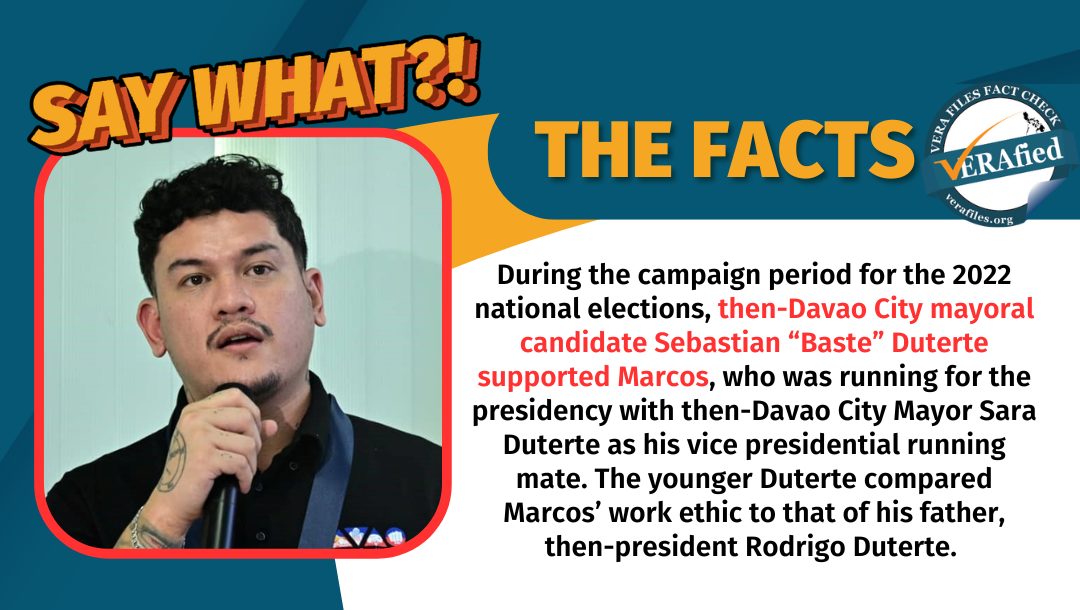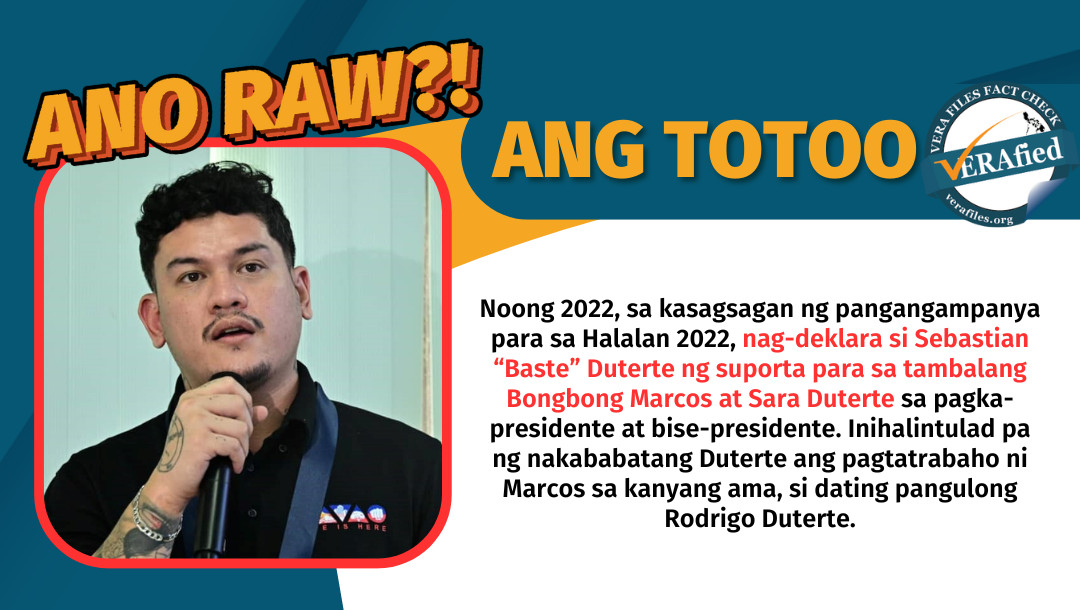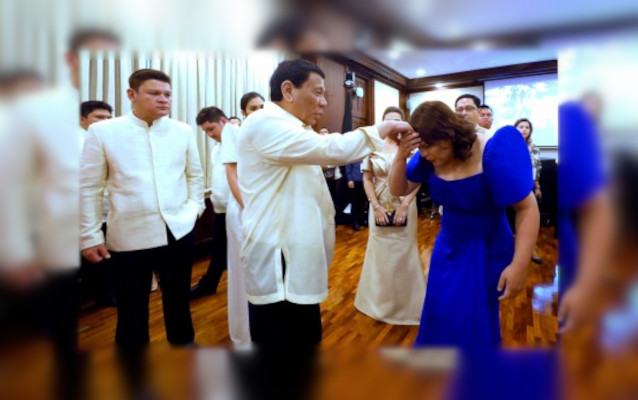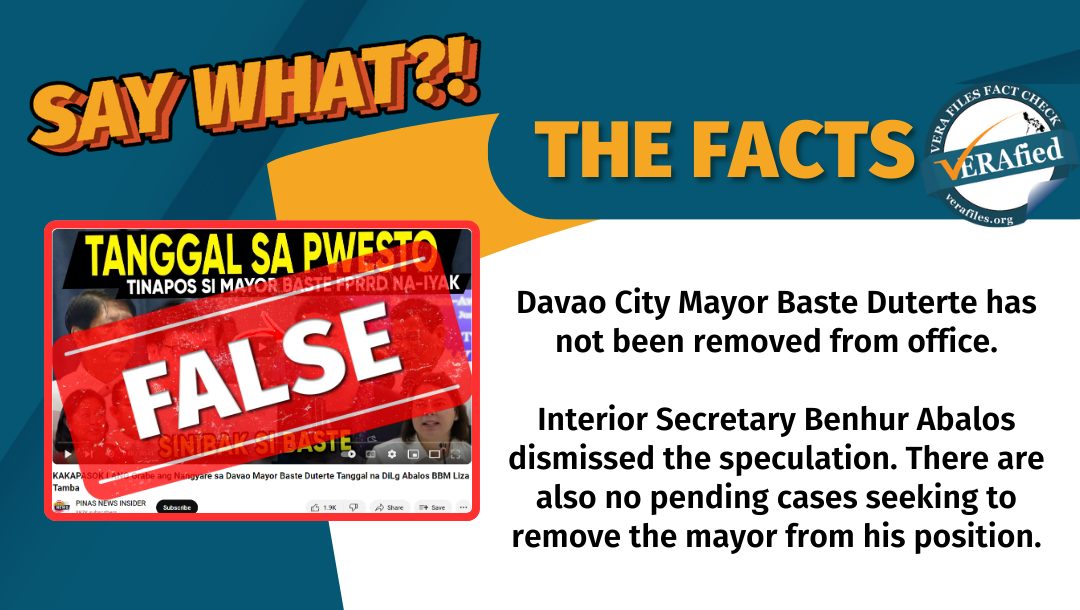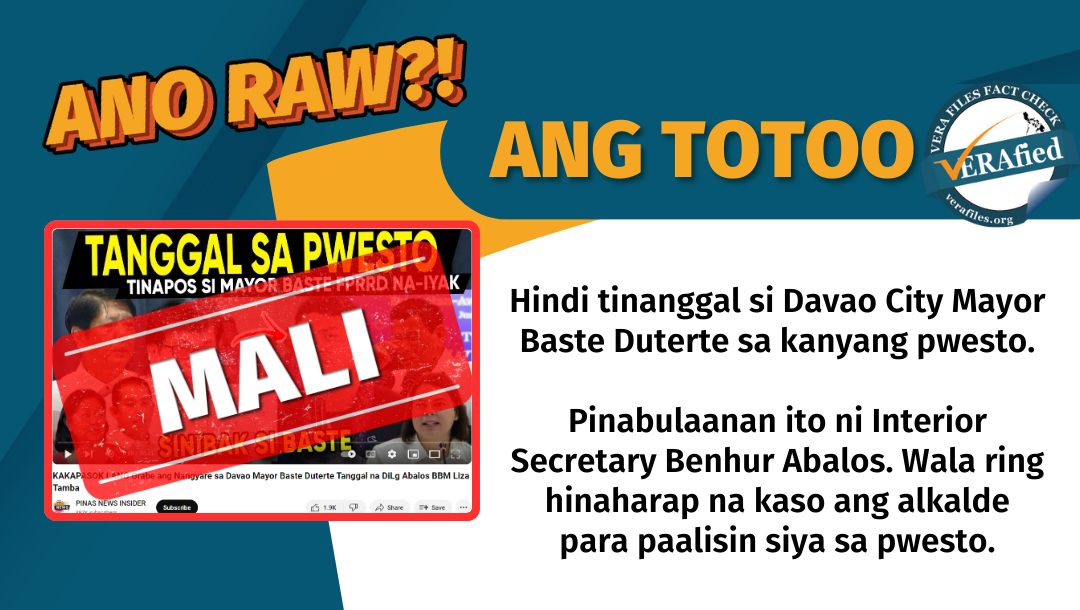His first kill order came naturally from none other than his own father, the former president. Even before Baste could become mayor, at his miting de avance for the 2022 elections, the father told the crowd what he had advised his son: “If you are mayor, Baste, and you don’t know how to kill – you have to start learning tonight – because if the mayor does not know how to kill or is afraid how to kill – you will have a big problem.”
It was a counsel that was straight out of the Rodrigo Duterte playbook of death, another one to support the complaint of crimes against humanity lodged against him in the International Criminal Court.
How did that advice, said publicly amorally as is the usual, shaped the young Duterte as mayor of Davao city? By this time, after the testimonies of former assassins of the Davao Death Squad, the Duterte template has become predictable and known.
Asked on election day what his reaction was to his father’s kill advice, Baste replied: “Why would I kill? I won’t do that myself. I won’t tell anyone to do that. Even to the police, it’s the same thing.”
Yet he did lift a line from the Duterte template. He said: “To be honest, I’d rather see those criminals die rather than my policemen.” It was classic Duterte “nanlaban” script (the victims fought back armed). Of course by now, even confessing cops have refuted that nanlaban line: many of the dead were unarmed, including the young Kian de los Santos.
The Duterte drug war was staged and the world knows it by now. But even such exposés would not deter Baste Duterte from becoming a killer Duterte. How did his transformation proceed, and more importantly, what was the impetus?
In a staged show, the rest of the script is predictable. And rightly so, it was. In March this year, Baste declared openly: “You criminals, if you are a pedophile or rapist, I will kill you. If you are a kidnapper, hold-upper, I will kill you.”
It actually sounded like the same statement his father before him said in February 2009: “If you are doing an illegal activity in my city, if you are a criminal or part of a syndicate that preys on innocent people of the city, for as long as I am the mayor, you are a legitimate target of assassination.”
Local media then reported that hours after Baste’s drug war policy speech, “the first blood was spilled.” The press report said that the suspect, an alleged drug pusher, “was killed during ‘an armed confrontation’ with police personnel and the Philippine Drug Enforcement Agency.” Aside from drugs, also seized from the suspect was one .45 caliber pistol loaded with live ammunition. Notice the story’s familiar elements: nanlaban, a seized gun, and seized shabu.
But the Dahas Project of the University of the Philippines Third World Studies Center refutes that the killing was Baste’s first. Dahas is not even based in Davao city but their research is scales up high more informed than Davao city’s local media.
Dahas said that between July 1, 2022 (the date when Baste took office) and March 15, 2024 – notice that that is a period of one year and eight months – there were 97 drug-related killings in Davao city. That makes one killing per week since Baste took office. The father must be proud. But anyone not noticing that there were in fact almost a hundred deaths before “the first blood was spilled” must be in a Stockholm’s Syndrome.
Dahas has impressive credentials. It recorded continued extrajudicial killings in Manila during the Wuhan virus lockdowns. It also recorded that the Marcos government had more drug-related killings in its first year in office (438) more than the Duterte government’s final year in office (302). It also noted that of the 438, only 197 were attributed to state agents such as the police. That may indicate that police-hired assassins and vigilantes are still contracted for the killing jobs. It also indicates that money is still flowing to pay these hired assassins.
The Duterte brand of drug war is a story of blood and benefits. Former assassins of the Davao Death Squad have already confessed that police are rewarded with cash payments sourced from the city’s intelligence and peace and order funds. Both Arturo Lascañas and Edgar Matobato, former hitmen whose testimonies have reached the ICC, knew the source of the funds. Lascañas also said he was paid using the Davao city hall fund for ghost employees. The script is simple: when there is money galore, city executives could easily dip their fingers into the non-audit funds for any purpose imaginable to them. When will that be outlawed?
The first order of the day in a Duterte drug war is the available money that can be corrupted. Baste’s transformation is nothing short of predictable.
All Dutertes in power for the last 30 years in Davao city speak of their No. 1 achievement – the regime of security they have achieved for a city that has been traditionally ridden with goons and crime since the 1950s. Curiously however, if they have sat in the Davao city hall for the past 30 years, why is it that crime has never been eradicated in the city? If the father’s and the daughter’s drug wars were equally bloody, why do drugs still proliferate in Davao city?
There will always be drugs in Davao city, related Lascañas of his insider’s knowledge of the Duterte drug wars there. “Duterte is the lord of all druglords in the Philippines.” No member of the Duterte family, to date, has ever denied Lascañas’ claim. He also related that when he initiated Paolo Duterte to Freemasonry in the Davao Lodge 149 where Lascañas was then the Worshipful Master, he personally saw the Duterte son’s drug triad tattoo on his back. He said he knew why. “Polong was the mastermind in the smuggling of shabu in the Port of Davao, and I was one of his conduits or front men.”
If we go by these elements, Baste’s transformation was no transformation at all. His venture into the drug war was expected.
Of its tangible benefits, it will provide him the same intangible benefits of the reigns of both his father and sister. The anatomy of Davao city’s drug war, as we know it by now, gives them the gains they need to remain in office: power, impunity and the fear of their tyranny it can impose on the people. Local folks may see it as a regime of security. But for the Dutertes, it means perpetuation in office till kingdom come.
It is a fake war that they are not ashamed to wage before the world. And Baste is as shameless as his other family members before him.
The views in this column are those of the author and do not necessarily reflect the views of VERA Files.
